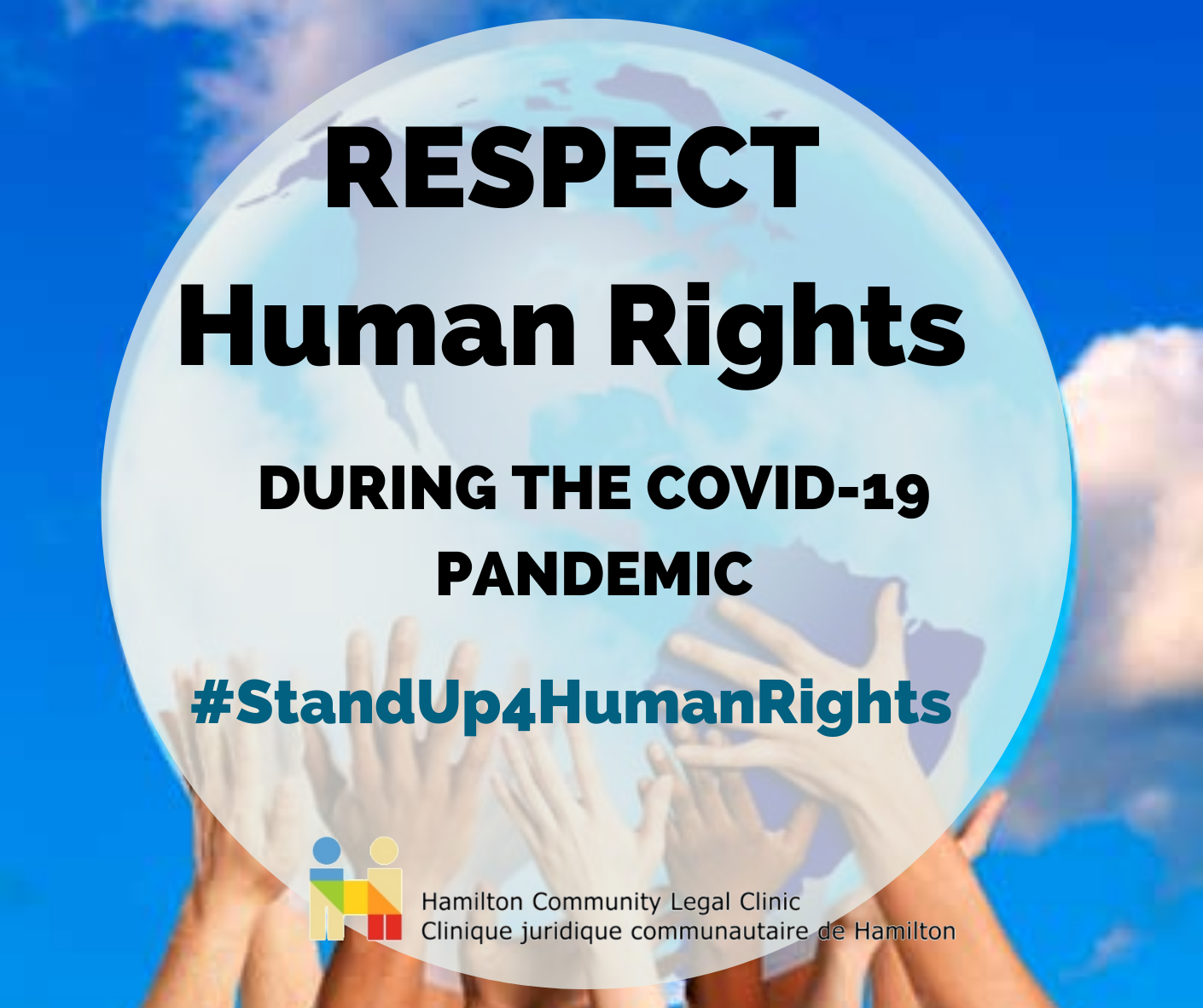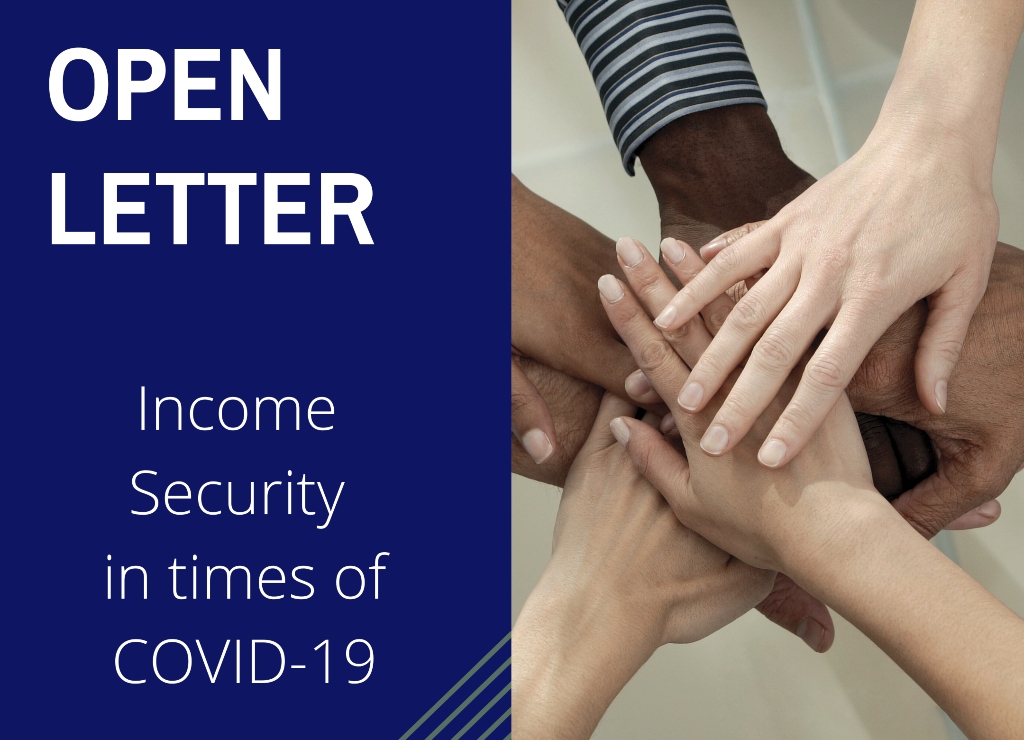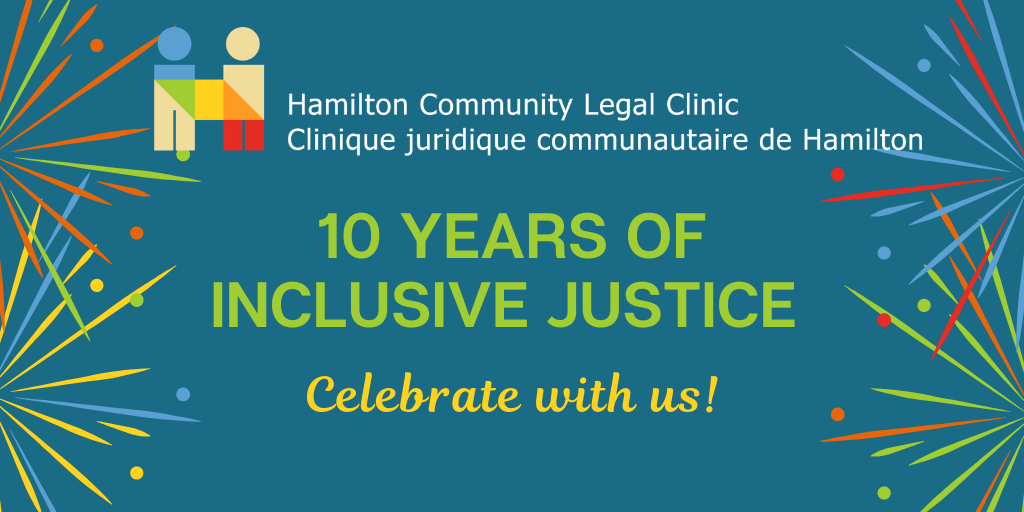
We ask that organizations including all levels of government ensure that vulnerable community members are part of the planning process to keep communities safe. It is critical that pandemic planning and the actions generated are equitable and uphold fundamental human rights. Specifically, it is essential that the City of Hamilton and the provincial government follow the principles set out in the Ontario Human Rights Commission’s “Policy Statement on a human-rights approach to managing the COVID-19 pandemic” to ensure that everyone’s human rights are protected. Without these considerations, low income, racialized, Black, and First Nations, Inuit and Métis communities and persons with disabilities will be disproportionately impacted. We also remind all officials that this is a crisis best addressed from a public health approach.
The Province continues to stress the importance of staying at home. It is imperative to recognize that not everyone has a home to go to. Individuals, especially those who are homeless, must not be penalized because of their economic circumstances. We are urging the City to immediately divert all available resources to existing efforts in securing facilities like stadiums, hotels, and dorms so that people can participate in the collective goal to slow transmission. This is the most effective and just way to flatten the curve and we call on all levels of government and private/public sector partners to come together to make it happen.

Download this letter in PDF format.
Dear Minister Smith,
We are an umbrella group of low-income Ontarians, health care providers, and other organizations. We call on you to ensure the most vulnerable members of our Province have meaningful income security during the COVID-19 pandemic.
Background
The COVID-19 pandemic has caused illness, deaths and immense economic disruption and undermined the income security of many in Ontario. While federal and provincial governments have taken positive steps to provide additional income support during the pandemic, many low-income Ontarians are still falling through the cracks. If we are to weather this storm together, we must ensure that nobody in Ontario is left behind.
We ask for the following changes that will help low-income Ontarians, whose vulnerability to ill health during this emergency has worsened. We urge you not to wait any longer. The income support to our most vulnerable population is needed now.
Raise the Social Assistance Rates
First, social assistance rates should be immediately increased. These rates are far below the poverty line, and are less than the cost of food and housing alone. In the past year, the rates were not increased to keep up with inflation and are insufficient for coping with additional needs during a pandemic.
A single person in financial need, for instance, can receive up to a total of $733 per month from Ontario Works. If that person qualifies as a person with a disability, they can receive up to $1,169 from the Ontario Disability Support Program. These rates are far below the poverty line of $1,767 per month, which contributes to food insecurity, poor health, and the current homelessness crisis – a recipe for disaster during COVID-19.
Raising the rates would also lift up many Ontarians affected by the pandemic who do not currently qualify for income support. As a result of COVID-19, many people will struggle to get by when their incomes fall dramatically to hover just above the current inadequate rates. With a rate increase, these individuals and families who may not be eligible for federal emergency benefits could become eligible for social assistance.
Although Ontario has announced the availability of additional funds for discretionary benefits, this is simply not enough. It requires social assistance recipients to individually request overworked caseworkers for an unknown and entirely discretionary amount of additional funds to cover specific expenses like cleaning supplies. It is too uncertain, hard-to-access, and limited to be of any meaningful benefit to low-income Ontarians.
Substantially raising the rates, by contrast, is a broad-reaching, transparent, and long-term solution. It is the right thing to do ensure that everyone is able to feed and clothe themselves and live with health and basic human dignity.
Exempt Federal Benefits from Clawback

On April 1st, 2010, Hamilton Community Legal Clinic began operations after amalgamating Dundurn Community Legal Services, Hamilton Mountain Legal & Community Services and McQuesten Community Legal Services. It’s hard to believe that it’s been 10 years serving Hamilton as one clinic! We achieve positive changes and strengthen our community by promoting inclusive justice for vulnerable Hamilton residents. Our services aim to reach populations that have been disproportionately ignored and mistreated by our legal system.
Today, we are proud to say we have built relationships with many of these communities to deliver services and advocate for systemic change. We have done this by working within and with these communities. Although “celebrations” aren’t appropriate or indeed possible in these difficult times, we do wish to celebrate our commitment and actions to achieve inclusive justice. We also look forward to when we can celebrate together, by breaking bread and honouring each other and our stories and will do so as soon as it is safe to gather.
We are available to help by phone 905-527-4572 and online www.hamiltonjustice.ca/contact